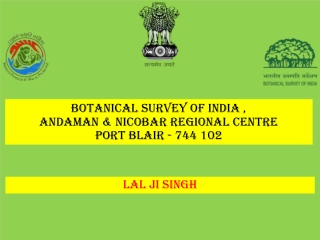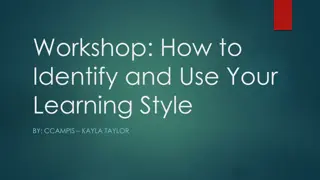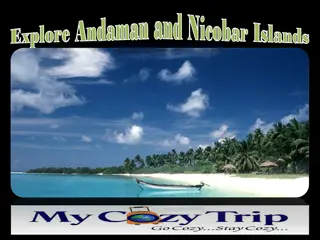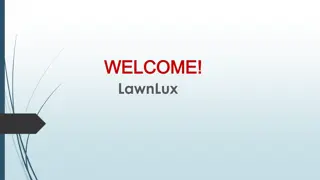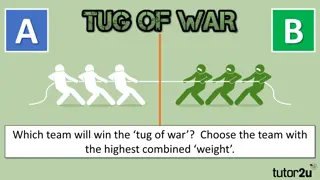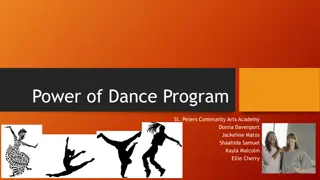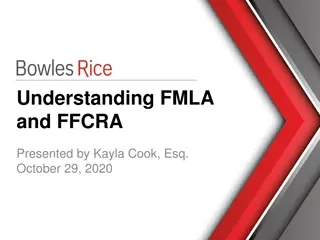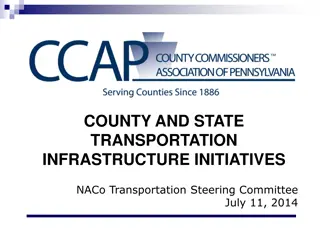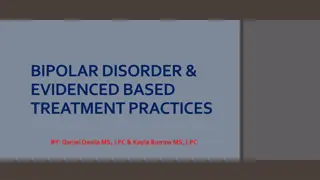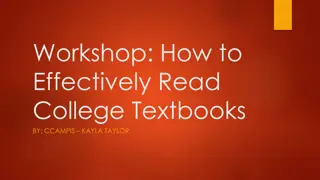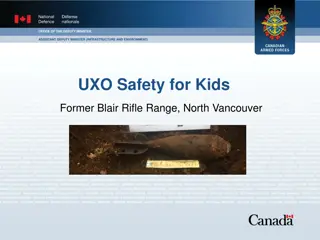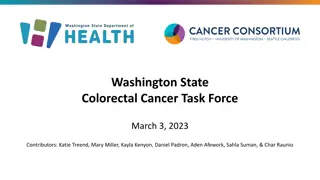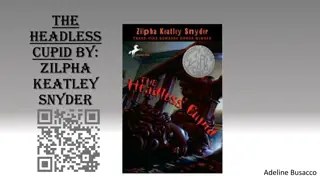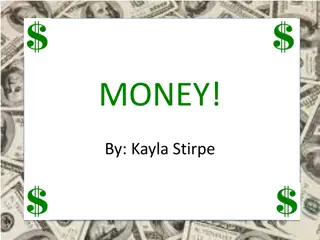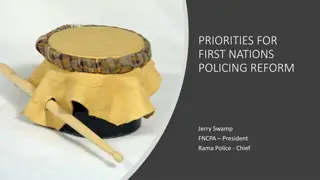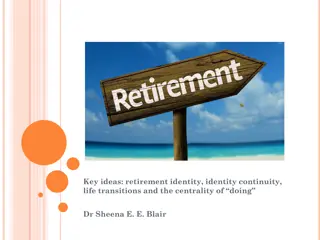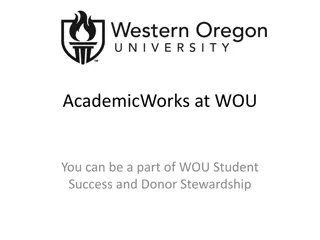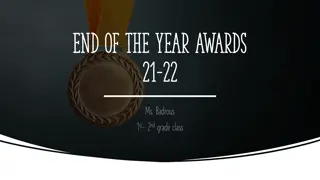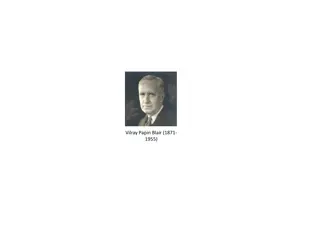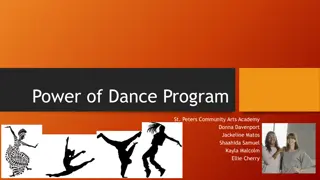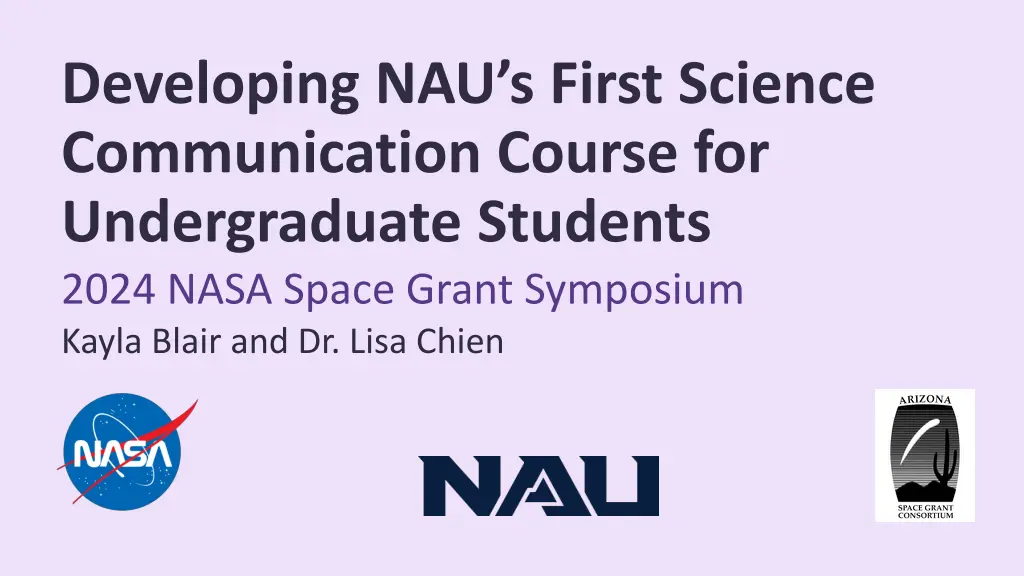
Innovative Science Communication Course for NAU Undergraduates
"Embark on a journey to develop NAU’s first Science Communication course for undergraduate students in 2024, emphasizing essential career skills and practical knowledge applicable in all aspects of life. Dive into challenging topics in technical astronomy, engage in various written and oral assignments, and participate in enriching community outreach activities for a holistic learning experience."
Download Presentation

Please find below an Image/Link to download the presentation.
The content on the website is provided AS IS for your information and personal use only. It may not be sold, licensed, or shared on other websites without obtaining consent from the author. If you encounter any issues during the download, it is possible that the publisher has removed the file from their server.
You are allowed to download the files provided on this website for personal or commercial use, subject to the condition that they are used lawfully. All files are the property of their respective owners.
The content on the website is provided AS IS for your information and personal use only. It may not be sold, licensed, or shared on other websites without obtaining consent from the author.
E N D
Presentation Transcript
Developing NAUs First Science Communication Course for Undergraduate Students 2024 NASA Space Grant Symposium Kayla Blair and Dr. Lisa Chien
Why Science Communication? Communication is the 2nd most important Career Readiness skill (NACE) The skills and knowledge developed by practicing science communication are applicable in all areas of life The science world needs young scientists who already, by the end of their undergraduate education, have developed an intuitive feel for the basic rules of narrative structure (Houston We Have a Narrative) Courses at NAU emphasis scientist-to-scientist communication Strongly differs from scientist-to-public communication Relies on the deficit model and not the dialogue model, which is makes for more productive communication (Reincke, 2020)
Developing the Course Summer Fall 2023
Topics 01 03 02 Technical Astronomy Challenging or Controversial Topic can be hard to effectively communicate May intersect with cultural beliefs Approaching from a scientist s perspective Ex: Flat Earth Equity, Diversity, Inclusion, & Justice Requires in-depth knowledge of astronomy Information found in research papers or textbooks Ex: Brown Dwarfs How astronomy is becoming more inclusive Areas that astronomy could improve its inclusivity in Ex: Making astronomy accessible to the visually impaired
Assignments 01 03 02 Written Practices Oral Practices Activities & Public Engagement 3 250-Word Abstracts Professional Article/Blog Post 3 Elevator Speeches 3-5 Minute Presentation In-Class Debate Video Interview with an Astronomy Faculty Member Participation in class Community Outreach Event
Community Outreach Shadowing a Public Program Educator through Lowell Observatory s Public Programs Shadowing a Lesson through the Native American Astronomy Outreach Program (NAAOP) by Lowell Observatory Shadowing a Public Night at the Barry Lutz Telescope at NAU Flagstaff Astronomy Symposium Scavenger Hunt through the Flagstaff Festival of Science Source: Flagstaff Star Party
Implementing the Course Spring 2024
Student Information Age Race 66.7% of students are 22 or older 46.7% of students identify as white Previous Sci Comm Experience Grade Level 66.7% of students are seniors 46.7% of students had previous science communication experience Gender 66.7% of students identify as male
Written Practices Assignments 250-Word Abstracts Professional Article/Blog Post Student Feedback I had to be creative in translating the jargon into layman's terms. If I think about [my topic] in that ABT format it becomes a lot easier to write Overall Thoughts Students are very successful with the written assignments Less emphasis on them in the future Figure 1: A qualitative analysis of the students first and second 250-word abstracts. Students have gotten better at communicating their topic s significance, using good language, and incorporating the ABT format
Oral Practices Assignments Elevator Speech 3-5 Minute Presentation In Class Debate Interview with an Astronomy Faculty Member Student Feedback A good exercise on organizing thoughts and staying composed in front of others I actually feel like I'm getting better at speaking in front of groups! Overall Thoughts Students struggled more with these assignments Seemed to be beneficial as a practice space Figure 2: A qualitative analysis of the students first and second elevator pitch. Students have gotten better at communicating their topic s significance.
Activities and Public Engagement Assignments Community Outreach Participation in Class Student Feedback it's not just about what you say but HOW you say it Effectively communicating science is important because it might make an impact on a young mind one day and change their life. Overall Thoughts Students have enjoyed the activities we have provided Might include more that don t take place on just the weekends or happen at different times Shadowing a Public Program Educator NAAOP BLT Nights/Events Astronomy Symposium FFS Scavenger Hunt Other Figure 3: Activities student selected to do/did for community outreach. Majority of students shadowed a Public Program Educator or did an activity we hadn t originally offered.
Course Reflection Spring 2024
Future Courses Continued emphasis on oral practices, as there is less space for that to be incorporated in other courses Broader range of community outreach activities Incorporating more in class activities for hands on practice as opposed to lecturing
Acknowledgements For their participation in our course as a guest speaker: Dr. Peter Frederichi, Dr. Christina Thomas, Dr. Chad Trujillo, Nena Bloom, and Lauren Shollenberger For their support with our community outreach opportunities: Jason Sanborn, Kevin White, Kevin Conley, Todd Gonzales, Scott Nelson, Juan Ruiz, Misha Pipe, Gavin Moriarty, and Elizabeth Vogler For their help during the grant process: Dr. Mark Salvatore For our students: Hunter Brooks, Fern Carter, Zia Clark, Virginia Crook, Jarod Despain, Erin Evans, Jadyn Fisher, Hayden Green, Max Hood, Jack Kohm, Ryan Milligan, Moraa Morara, Aliya Rhodes, Jay Wiley, and Riley Williams Funding for this project is from the Hooper Undergraduate Research Award and the Arizona NASA Space Grant
Resources What is Career Readiness? . National Association of Careers and Employers. https://www.naceweb.org/career-readiness/competencies/career-readiness-defined/. Olson, R. (2015). Houston, We Have a Narrative. University of Chicago Press. Reincke, C. M., Bredenoord, A. L., & van Mil, M. H. (2020). From deficit to dialogue in science communication: The dialogue communication model requires additional roles from scientists. EMBO reports, 21(9), e51278. https://doi.org/10.15252/embr.202051278

